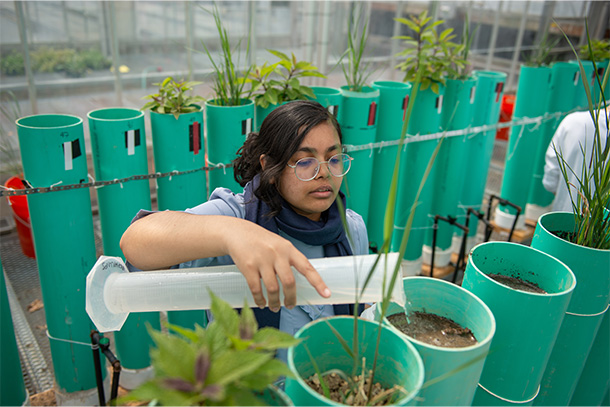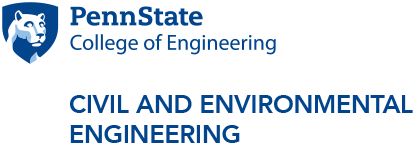Sustainable Solutions for Water Management

The sustainable solutions for water management thematic area addresses critical challenges in water quality, availability, and infrastructure. Researchers develop strategies to manage resources sustainably and integrate technologies such as sensors, machine learning, and green design to mitigate the impacts of climate change, urbanization, and pollution in our water systems.
Example research topics include:
- Maintaining high-quality water resources
Example projects: Removing emerging contaminants from groundwater and drinking water supplies; Evaluating water quality performance of various green stormwater infrastructure designs; Reducing phosphorus leaching from agroecosystems and minimizing the downstream eutrophication; Unraveling continental-scale patterns and drivers of terrestrial and aquatic carbon fluxes under hydroclimate extremes - Remediation and restoration of contaminated land
Example projects: Remediating soil contaminated with hazardous wastes; Developing strategies to stimulate biological sulfide production in the deep layer of acidic pit lakes to remediate environmental damage from mining activities - Assessing and addressing the impact of climate change impacts on environmental systems
Example projects: Assessing the viability of carbon sequestration in igneous rock formations; Understanding and projecting the impacts of climate change and climate extremes on river water quality; Modeling climate change impacts on downstream flooding; Tropical glacierized volcanoes as sentinels of global change: integrated impacts on water, plants, and elemental cycling; Quantifying controls and feedbacks of dynamic storage on critical zone processes in western montane watersheds - Recovering valuable materials from water and wastes systems to support a circular economy
Example projects: Recovering elements from wastewater and hydrothermal brines; electrochemically desalinating water for remote military units; recovering nutrients from wastewater and upcycling them into fertilizers, fuels, and food; applying biomimicry-based design concepts to improve conversion of lignocellulosic wastes and bioenergy crops to renewable natural gas - Advancing knowledge systems and policy to support sustainable water management
Example projects: Understanding social, technical, and ecological systems challenges of emerging contaminants in our water supplies; Advancing theory and practice of collaborative and transboundary water governance dynamics
- Research Thematic Areas
- Infrastructure Resilience and Adaptation to Climate Change
- Decarbonization of the Built Environment
- Safe and Equitable Mobility Systems
- Sustainable Solutions for Water Management
- Artificial Intelligence and Physics-Informed Machine Learning for Sustainability Challenges
-
Sustainable Solutions for Water Management Faculty
- Bill Burgos
- Roberto Fernandez
- Chris Gorski
- Christine Kirchhoff
- Li Li
- Bruce Logan
- Lauren McPhillips
- Alfonso Mejia
- Cibin Raj
- Jay Regan
- Nathaniel Warner



